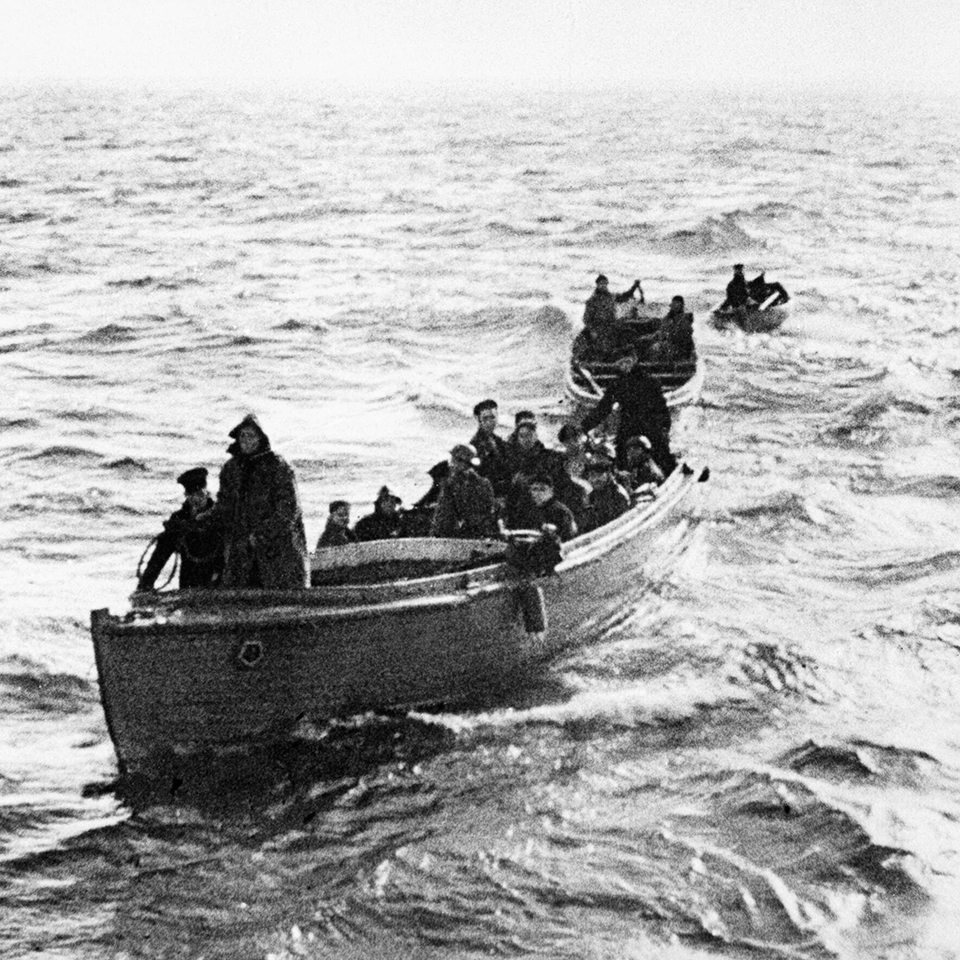It was a very dark time.
In late May of 1940, nearly eighty years ago, the pride of the British and French nations found themselves stranded. The screaming might of Nazi armies blitzkrieging through Belgium and France had crushed the British, French, and Belgian armies (several hundred thousand men) into the Channel port of Dunkirk. Against the deep waters and unforgiving skies of the English Channel, the soldiers awaited their bloody fate. Surely, the German armies would break through the remaining defenses. Undoubtedly, the German Luftwaffe would begin strafing the beaches. The likelihood of rescue was nil. The prospects of a bloodbath were almost certain.
It was a moment of great impotence. Because of the wreckage of the harbors and the threat posed by attacks from the sky, the British navy dared not bring ships too close for evacuation. So this is how it would end. Annihilation and the blackness of Nazi domination.
Except it didn’t.
Over the course of eight days, under the code name Operation Dynamo, the British came to the rescue. But it wasn’t a vaunted, special operations force that delivered the marooned young men. It was “the little ships.” British civilians formed a flotilla of pleasure crafts, schooners, fishing boats, tugboats, and garbage scows to ferry dozens of soldiers at a time from shore to awaiting ships (or even fully back to England).
While Winston Churchill crafted a pain-wracked speech anticipating the rescue of a mere fraction (twenty or thirty thousand) of the troops, the “Miracle of Dunkirk” delivered nearly three hundred and forty thousand.
What caused thousands of British civilians to put their lives in jeopardy saving the imperiled soldiers?
Duty.
A sense of duty has had a rough go in the last century. Our modern culture is too busy telling us to be impressed with ourselves, to do what feels right, to follow our own star. Freedom is the buzzword; responsibility is the bane. It is fashionable (if not imperative) to be cynical, smug, and ironic. In The Abolition of Man, C.S. Lewis noted,
In a sort of ghastly simplicity we remove the organ and demand the function. We make men without chests and expect of them virtue and enterprise. We laugh at honour and are shocked to find traitors in our midst. We castrate and bid the geldings be fruitful.
In A Letter to the Duke of Norfolk (1875), St. John Henry Newman observed,
Conscience has rights because it has duties; but in this age, with a large portion of the public, it is the very right and freedom of conscience to dispense with conscience, to ignore a Lawgiver and Judge, to be independent of unseen obligations. . . . Conscience is a stern monitor, but in this century it has been superseded by a counterfeit, which the eighteen centuries prior to it never heard of, and could not have mistaken for it, if they had. It is the right of self-will.
Self-will can help us assert ourselves and achieve notable ends, but are they the right ends? In Thomas Babington Macauley’s Horatius (one of his Lays of Ancient Rome), self-will would not have served Rome well. Horatius, with two others and at great risk to his own life, defended the bridge spanning the Tiber against the marauding Etruscan army. As Macauley records,
Then out spake brave Horatius,
The Captain of the Gate:
“To every man upon this earth
Death cometh soon or late.
And how can man die better
Than facing fearful odds,
For the ashes of his fathers,
And the temples of his Gods . . .”
“Haul down the bridge, Sir Consul,
With all the speed ye may;
I, with two more to help me,
Will hold the foe in play.
In yon strait path a thousand
May well be stopped by three.
Now who will stand on either hand,
And keep the bridge with me?”
John Fletcher Moulton, in his speech Law and Manners (1924), spoke to duty against self-will:
The country which lies between Law and Free Choice I always think of as the domain of Manners. To me, Manners in this broad sense signifies the doing that which you should do although you are not obliged to do it. . . . It is the domain of Obedience to the Unenforceable. The obedience is the obedience of a man to that which he cannot be forced to obey. He is the enforcer of the law upon himself.
When I discussed this essay with one of my internal medical residents, he slowly nodded. His Danish mother would utter a like-minded notion whenever she reminded him to write a thank-you note or help a neighbor with some task. “Det er det man gør,” she would intone. “It is what is done.”
It is easy to know what we want to do, but it is essential for us to do what we ought to do.
Winston Churchill knew this acutely during those harrowing days evacuating Dunkirk and ultimately, years later, roaring back to defeat Nazi Germany. Churchill said it best: “It is not enough that we do our best; sometimes we must do what is required.”
The sense of duty may not be modish or convenient. In fact, duty can be pretty damn hard. But no matter.
It is necessary.
“It is what is done.”
